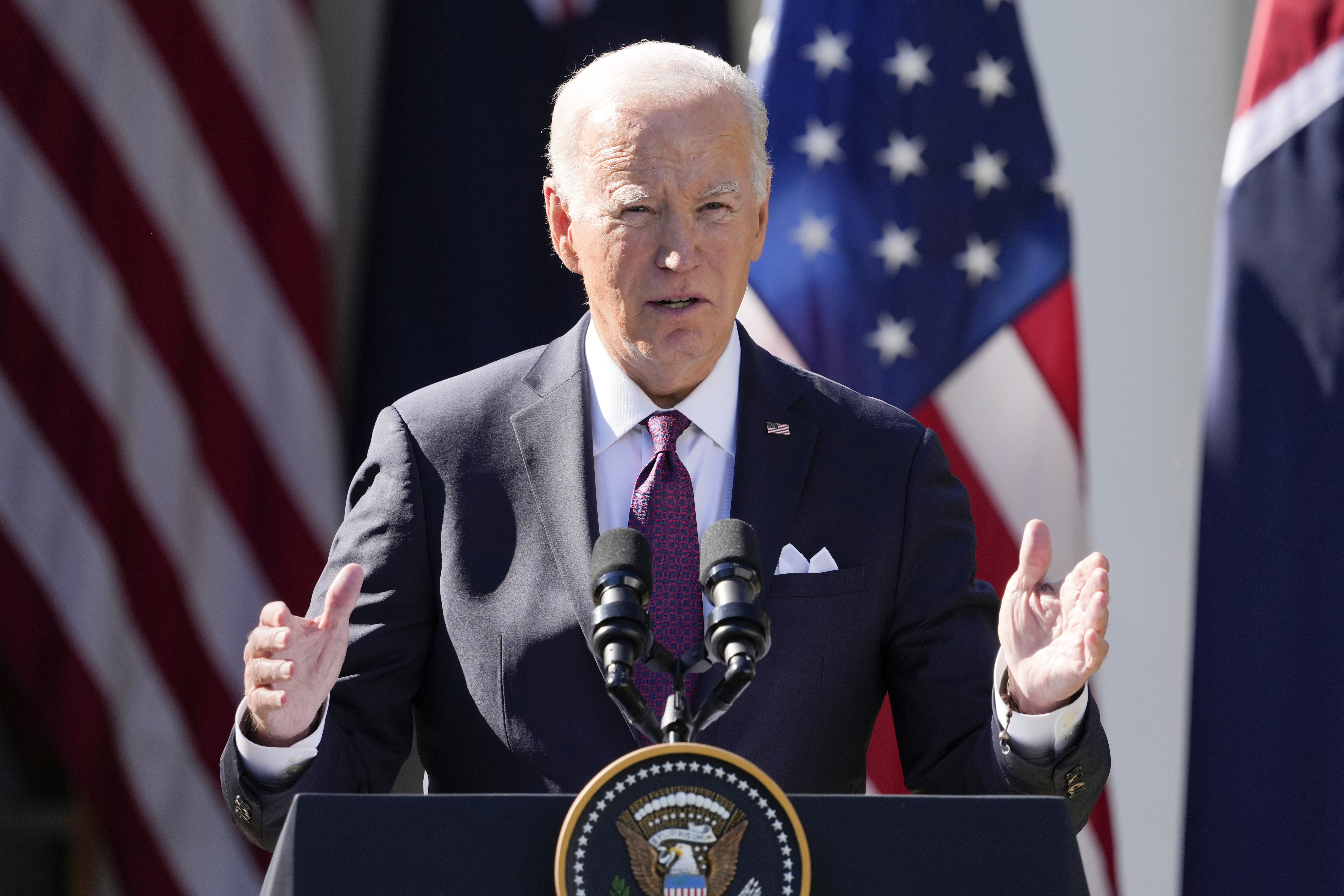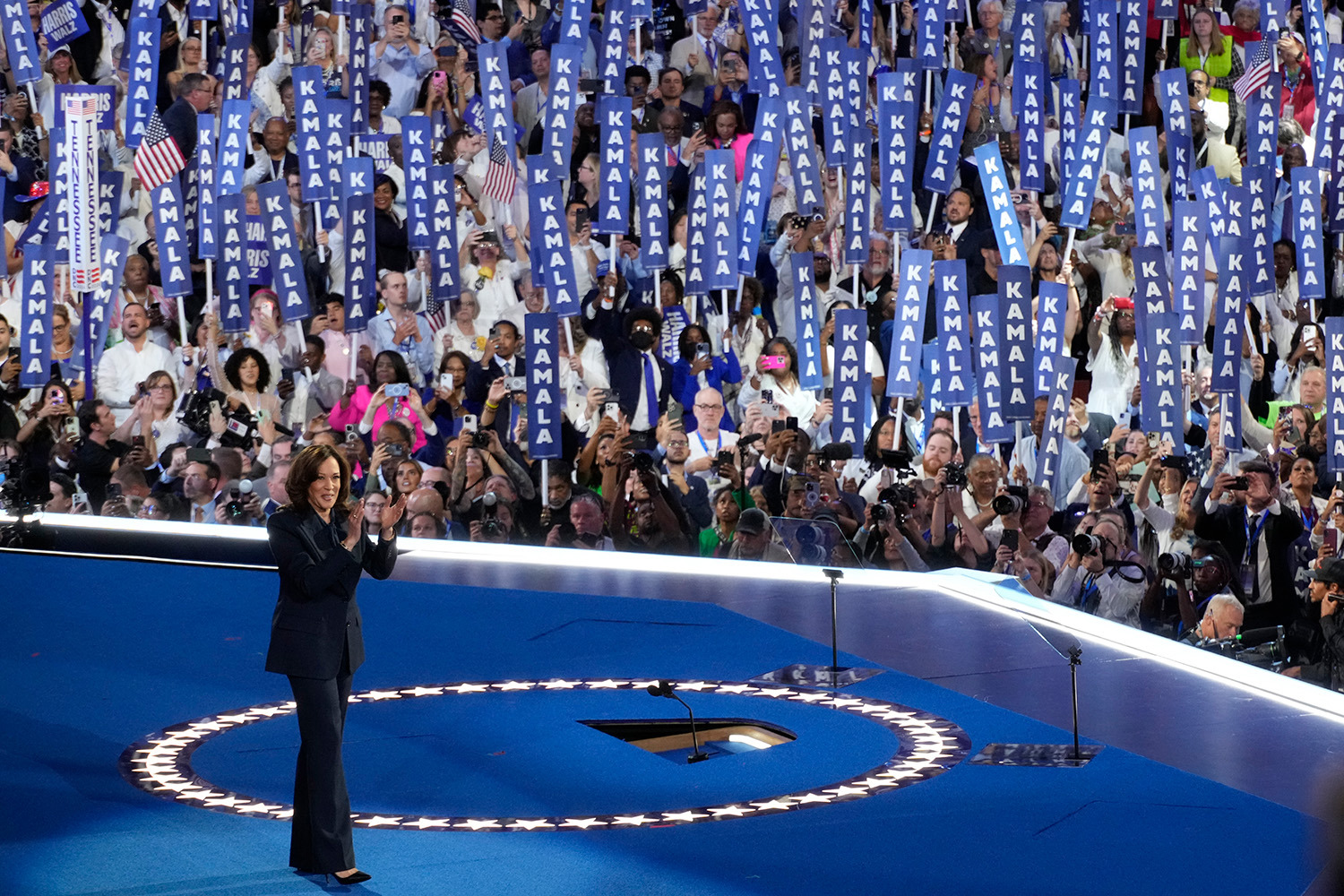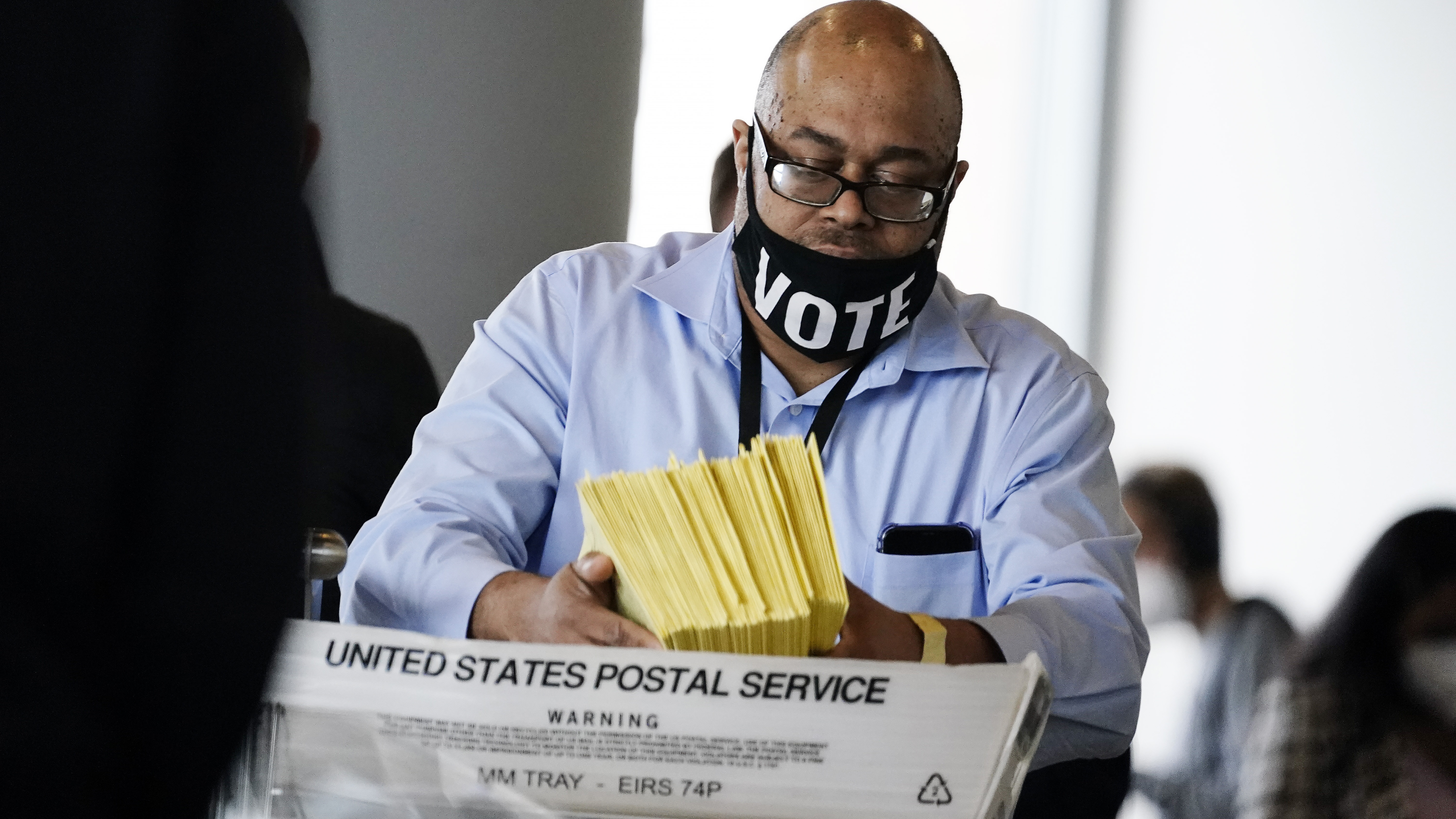There might be 50 states in the United States, but only seven of them really matter in this year's presidential election.
The small handful of key battleground states are the only contests in the nation where both Donald Trump and Kamala Harris are considered a genuine chance of winning, and thus hold the key to the presidential race.
They certainly were in 2020 – while Joe Biden won the popular vote by about seven million ballots, it was winning Georgia, Arizona and Wisconsin by less than a combined 45,000 votes that sent him to the White House.
READ MORE: US election poll-tracker: Who will win on November 5?
Pennsylvania
Electoral votes: 19
2020 result: Biden win
2016 result: Trump win
Arguably the most important of the battlegrounds thanks to its 19 electoral college votes (one fewer than what it had in 2020), Pennsylvania was one of five states Biden flipped to defeat Trump at the last election.
2016 was the only time it had voted Republican since the 1990s, but polls show there is a chance of a repeat this time around.
The two candidates are essentially neck and neck, with Trump gaining the slightest of leads – a few tenths of a per cent – in the days leading up to the election.
READ MORE: The world's richest man has fallen in love with Donald Trump
North Carolina
Electoral votes: 16
2020 result: Trump win
2016 result: Trump win
North Carolina has only voted Democrat once since the 1980s, when it sided with Barack Obama in 2008.
Like Pennsylvania though, polls are suggesting an extraordinarily tight race, with Trump leading by around 1 per cent or less.
READ MORE: Could a racist joke about an island hurt Trump's presidential run?
Georgia
Electoral votes: 16
2020 result: Biden win
2016 result: Trump win
Biden won Georgia by less than 12,000 votes in 2020, one of the tightest and most important contests in that election.
It's the only time the state has voted for the Democrats since 1996, and current polls have Trump ahead by around 1-2 per cent.
There could be some delay in getting the result for the crucial battleground this year, thanks to controversial new laws – which were opposed by election officials and voter rights groups – requiring officials to count ballots by hand.
Michigan
Electoral votes: 15
2020 result: Biden win
2016 result: Trump win
Another one of the five states Biden won back in 2020, Michigan has voted blue every election since 1992 with the exception of 2016, when it was crucial in sending Trump to the White House.
Polls in the final days of the campaign have given Harris a slight lead here of around 1 per cent – nowhere near enough to suggest anything but a neck-and-neck race.
READ MORE: Harris talks abortion and more on Call Her Daddy podcast
Wisconsin
Electoral votes: 10
2020 result: Biden win
2016 result: Trump win
An indication of how important Wisconsin is? The Republicans chose the traditionally Democrat-leaning state to host their national convention earlier this year.
Much like fellow Great Lakes state Michigan, Wisconsin has only turned red once in recent memory, when it played a key role in Trump's 2016 victory.
Polls generally have Harris ahead here by a slender margin – often less than 1 per cent.
READ MORE: Fires set in ballot drop boxes destroy hundreds of US election votes
Arizona
Electoral votes: 11
2020 result: Biden win
2016 result: Trump win
Arizona was a massive win for Biden by the slimmest of margins – only about 10,500 votes separated him and Trump here in 2020.
The Sun Belt state has only voted Democrat twice since the 1970s, and Trump has an edge in the polls.
But – and forgive the broken record here – the margin is still narrow, even if it has widened in the days leading up to the election.
READ MORE: Road to the White House: New podcast launches ahead of US Election
Nevada
Electoral votes: 6
2020 result: Biden win
2016 result: Clinton win
Nevada is the smallest battleground state by electoral college votes, but its six could still be enough to decide who wins the White House.
While it's voted blue in the last four elections, little more than 30,000 votes separated Biden and Trump here in 2020.
Some polls are giving Trump a narrow edge, but the state is generally considered a toss-up as we head towards November 5.
READ MORE: Melania Trump doubles down on abortion support, at odds with husband
How many of the battleground states do Trump or Harris need to win to become president?
Let's assume all the other states (and the District of Columbia) play out as expected.
That would give Harris 226 electoral votes and Trump 219 – 44 and 51 away from the magic number of 270 respectively.
How many of the battlegrounds they each need to win then depends on which of those states we're talking about.
Either candidate would take the White House with just three of the seven if they win Pennsylvania, Georgia and North Carolina, which are worth a combined 51 electoral votes.
Pennsylvania is particularly important because of its 19 electors.
If it goes to Trump, Harris would have to win at least four of the battleground states – including at least one of Georgia and North Carolina – to stay in the race.
On the other hand, if the Democrats take Pennsylvania, Trump's path to victory gets very narrow indeed – if one of Michigan, North Carolina or Georgia follow suit, then Harris would be within 10 votes (or a single swing state as long as it isn't Nevada) of the presidency.
READ MORE: JD Vance and Tim Walz duke it out in vice presidential debate
Could any other states change hands?
It's highly unlikely, but there are a few other states where Trump and Harris aren't too far apart in the polls.
Florida was once hotly contested, and had been a bellwether (a state whose result mirrored the outcome of the entire presidential election) between 1996 and 2016.
But it's now considered a bit more of a GOP stronghold, with Trump winning in 2020 and his supporter-turned-opponent-turned-supporter Ron DeSantis serving as governor since 2019.
Texas is another fascinating case.
While it's voted Republican since 1980, Trump's margin of victory four years ago was the slimmest for a GOP candidate since the 1990s.
With polls showing Trump has around a 5 per cent buffer, it's unlikely to flip blue this year, but if it did, with 40 electoral college votes it would just about guarantee a Harris presidency on the spot.
On the other side of the political spectrum, Minnesota is looming as a potential battleground even though it's the state with the longest active Democratic voting streak, having stayed blue since 1976.
New Hampshire is another curious case – while it's voted Democrat since 2004, it's often one of the closest contests in the nation.
Either of them flipping to Trump would be disastrous for the Harris campaign.









